
Modal Verbs презентация
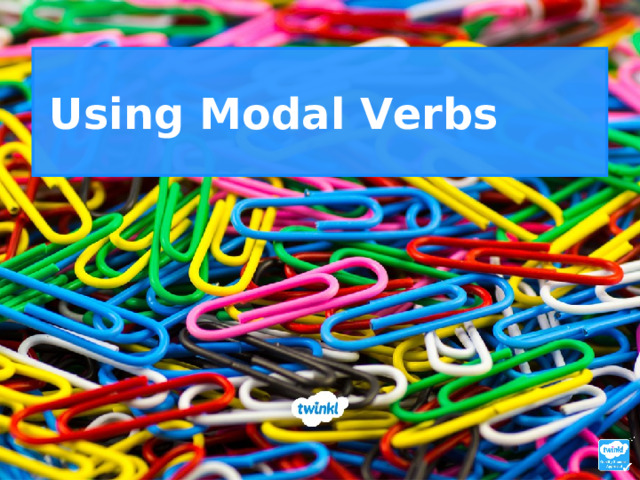
Using Modal Verbs
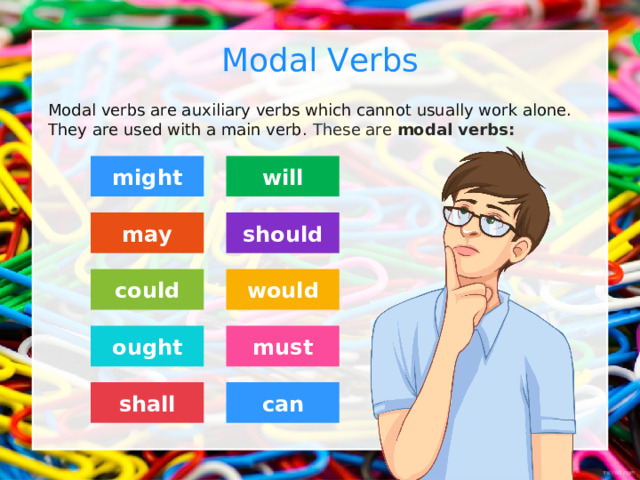
Modal Verbs
Modal verbs are auxiliary verbs which cannot usually work alone. They are used with a main verb. These are modal verbs :
might
will
should
may
would
could
must
ought
can
shall
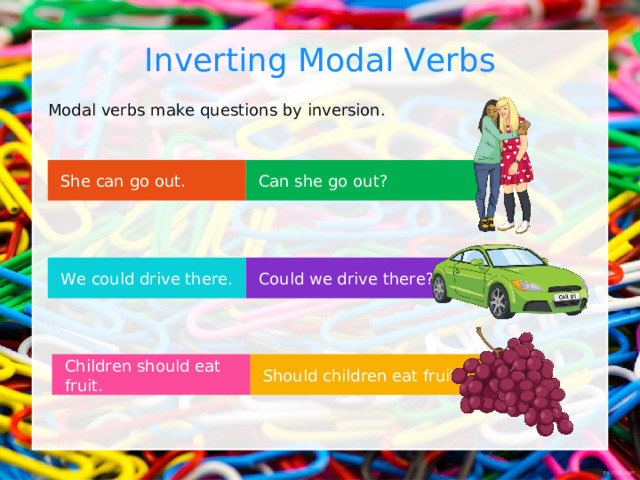
Inverting Modal Verbs
Modal verbs make questions by inversion.
Can she go out?
She can go out.
Could we drive there?
We could drive there.
Should children eat fruit?
Children should eat fruit.
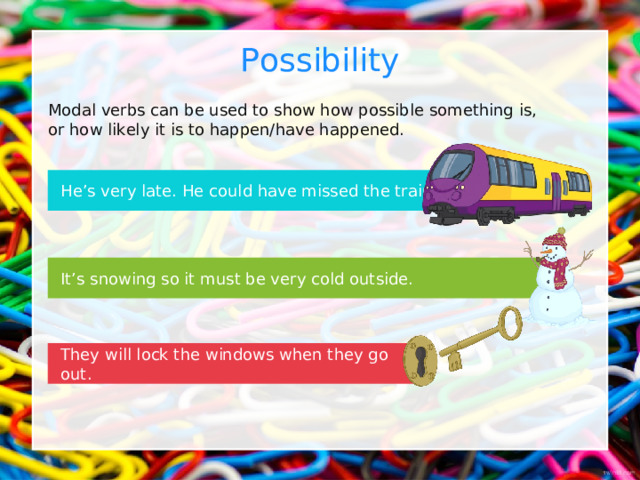
Possibility
Modal verbs can be used to show how possible something is,
or how likely it is to happen/have happened.
He’s very late. He could have missed the train.
It’s snowing so it must be very cold outside.
They will lock the windows when they go out.
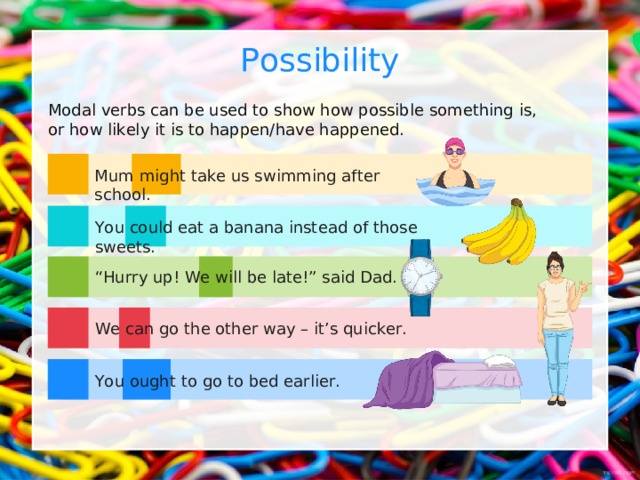
Possibility
Modal verbs can be used to show how possible something is,
or how likely it is to happen/have happened.
Mum might take us swimming after school.
You could eat a banana instead of those sweets.
“ Hurry up! We will be late!” said Dad.
We can go the other way – it’s quicker.
You ought to go to bed earlier.
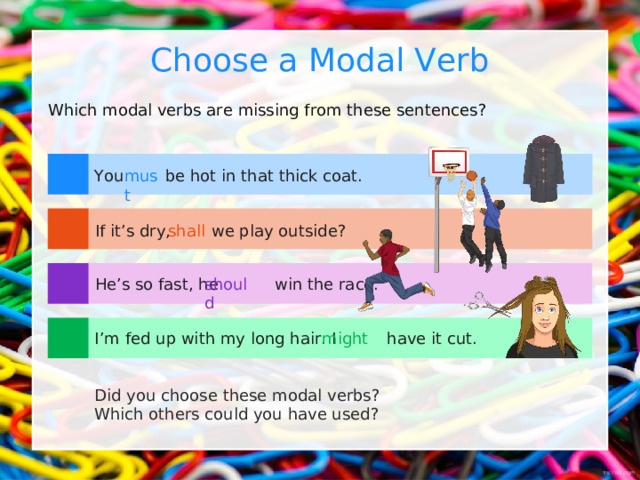
Choose a Modal Verb
Which modal verbs are missing from these sentences?
You be hot in that thick coat.
must
shall
If it’s dry, we play outside?
He’s so fast, he win the race.
should
I’m fed up with my long hair. I have it cut.
might
Did you choose these modal verbs?
Which others could you have used?
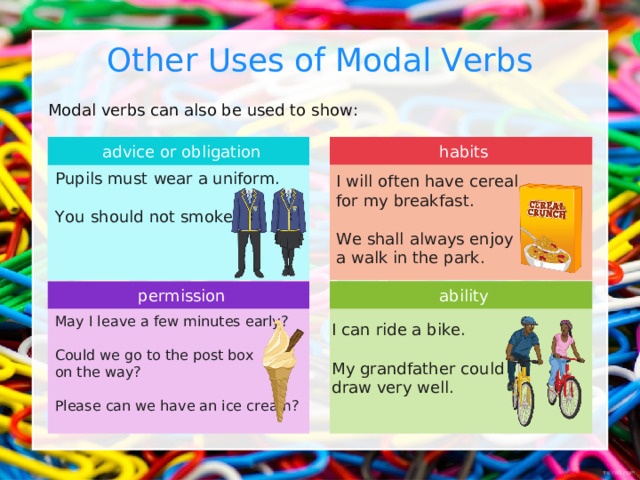
Other Uses of Modal Verbs
Modal verbs can also be used to show:
advice or obligation
habits
Pupils must wear a uniform.
You should not smoke.
I will often have cereal
for my breakfast.
We shall always enjoy
a walk in the park.
ability
permission
May I leave a few minutes early?
Could we go to the post box
on the way?
Please can we have an ice cream?
I can ride a bike.
My grandfather could
draw very well.
Материалы на данной страницы взяты из открытых источников либо размещены пользователем в соответствии с договором-офертой сайта. Вы можете сообщить о нарушении.